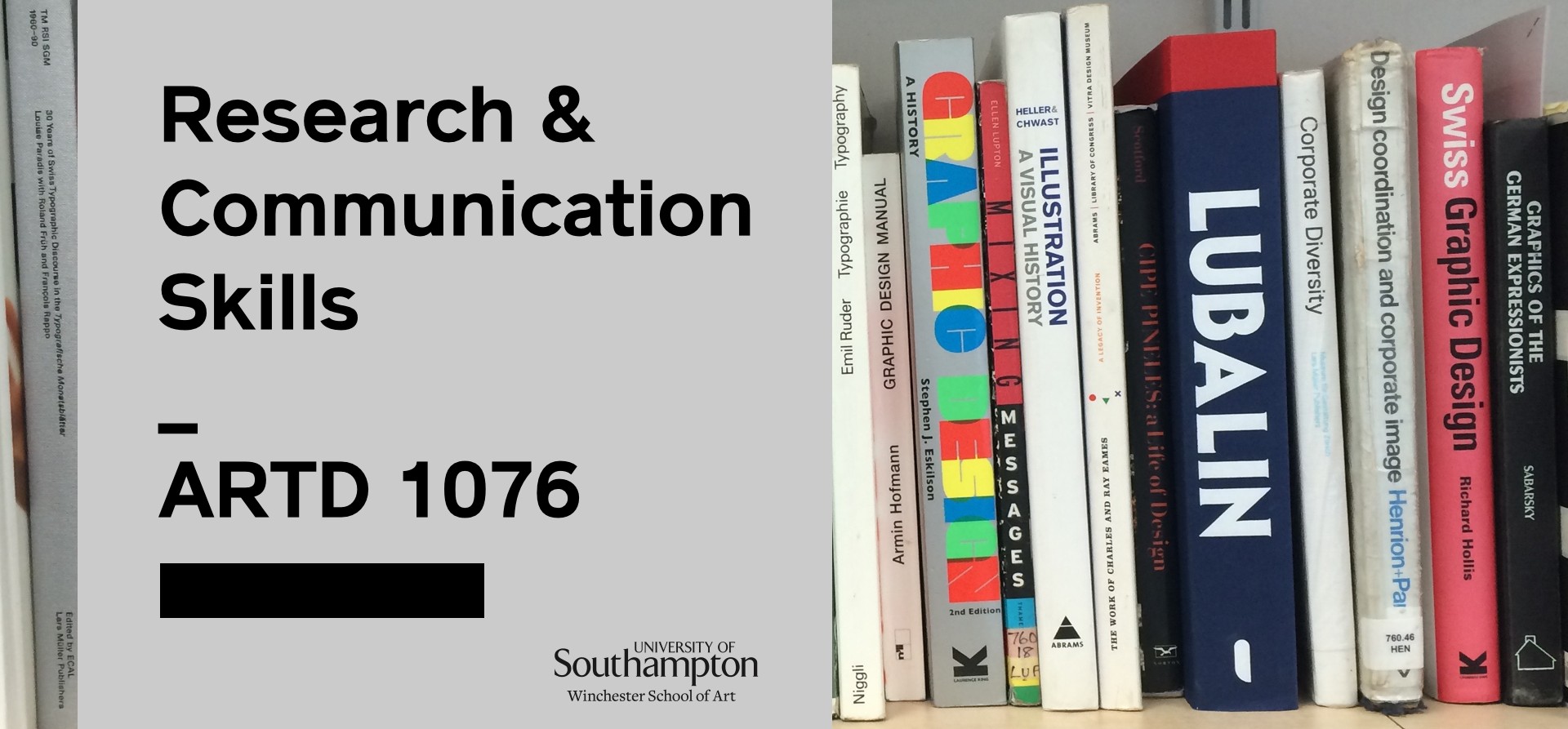During the first semester of University we have a ‘Research and Communication Skills’ lecture conducted every Thursday between 11-13:00 in which we learn the valuable skills of researching and academic study, in terms of by given weekly-set tasks based on various subject’s such as ‘Academic Integrity’ and ‘Ethics’. From this, I found in particular the gathering and researching from primary and secondary sources beneficial to my studies as it allowed me to use the knowledge and skills I have learnt; apply to my sketchbook work – in terms of using the library and other forms of sources from the internet. Similarly, I gained different techniques and diverse ways of collating information and research and presenting it in a literary manner but in my bibliography my Harvard referencing could be pursued more efficiently.
One of the tasks which was provided to us was ‘How to use Online Resources?’ which was all about gathering research/information in a manner of different sources via the library and the internet. This included looking into a wider spread of diverse and varied sources by researching into primary and secondary materials such as:
- Books,
- Journals,
- Articles,
- Websites,
- Newspapers etc.
After collecting the required information we’re expected to Harvard Reference throughout in which the task ‘Academic Integrity and Plagiarism’ was specifically based upon and given out as a set-task to complete. I found in particular Harvard referencing every piece of information (text and image) was very time consuming meaning I had to account for this every time I started writing a piece of text. On the other hadn’t, I did find that gathering information and Harvard referencing for a array of diverse primary/secondary sources to be useful and relevant – it enabled me to find information/Harvard reference quickly more clearly and I found the whole process easier to grasp upon each time.
The main thing I found in particularly hard to do was keeping to the word count/limit for each task just purely based on the fact that on written tasks, especially the ‘Reflective Writing’ and ‘Ethics’ task, when analysing images I come up with multiple ideas – in which need to be narrowed down and become more conformed and precise to keep in the 250/500 word limits. To adapt from this, I feel by sticking with 1 main final idea and creating 2/3 alternative interpretations based upon the original idea the outcome will be the same as having a diverse range of ideas but becoming more concise and keeping within the word limit.
To conclude I found that these lectures left me enriching my knowledge and skills for my other projects enabling me to find research from a wide variety of diverse sources.
